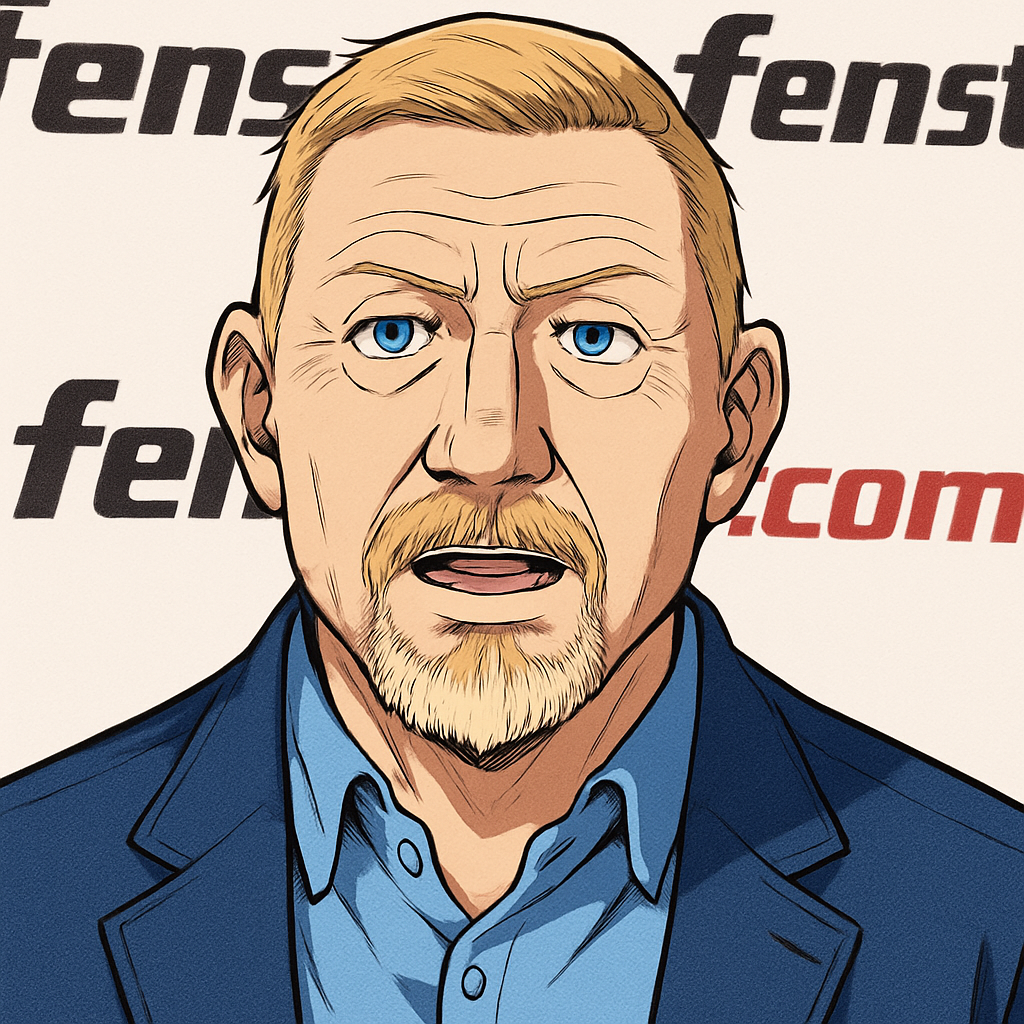MONTE CARLO — Tennis legend Boris Becker has made a startling and concerning claim about the state of mind of his former charge, Novak Djokovic, following the Serbian superstar’s recent decision to relocate his family to a new country. The six-time Grand Slam champion, who coached Djokovic for a period in the mid-2010s, expressed deep worry about the 24-time major winner's current form and motivation, suggesting a significant shift in the player's legendary focus.
The comments come in the wake of Djokovic’s surprising move to relocate from Monte Carlo to Marbella, Spain, a decision that has sparked widespread speculation within the tennis world. Becker, who maintains a close, albeit now informal, relationship with the Serbian, did not mince words when assessing the current predicament of the world No. 1, whose 2024 season has been uncharacteristically devoid of titles and marred by early exits.
A Concerning Dip in Form and Focus
Becker’s primary concern revolves around what he perceives as a clear drop in Djokovic’s trademark intensity and hunger. Speaking on the Eurosport podcast Das Gelbe vom Ball, Becker pointed to the Australian Open semi-final loss to Jannik Sinner as a pivotal moment. "The defeat against Sinner in Melbourne was a wake-up call. But since then, nothing has gotten better; in fact, it's gotten worse," Becker stated bluntly.
The German icon elaborated on the visible cracks in Djokovic's game, highlighting a lack of the usual fire that has propelled him to the top of the sport for over a decade. "You can see it in his body language. The shoulders are slumping faster than they used to. The frustration is more visible. That invincible aura, that certainty that he will find a solution in any situation, it's not there at the moment."
The Impact of the Move and Off-Court Distractions
While Becker was careful not to directly blame Djokovic’s relocation for his on-court struggles, he strongly implied a connection. Moving one's family to a new country is a massive logistical and emotional undertaking, and Becker believes this has inevitably cut into Djokovic’s famed single-mindedness.
Becker suggested that the 36-year-old is grappling with a new set of priorities that extend beyond the tennis court. "Novak is a family man. He has two young children. A move like this isn't just about changing houses; it's about changing your entire life. Schools, friends, a new environment... that consumes mental energy."
This mental energy, Becker argues, is precisely what made Djokovic so dominant. The ability to block out all external noise and focus solely on the next point, the next match, the next trophy, has been the bedrock of his success. That focus now appears divided. Becker pointed to several key areas where Djokovic’s game has notably declined:
- Serve: A higher number of double faults and a drop in first-serve percentage.
- Movement: A perceived half-step slower, leading to more unforced errors.
- Clutch Play: An inability to win the decisive points that he once owned.
The Search for Answers and a Path Forward
Becker’s assessment is not merely critical; it is rooted in a genuine concern for his former player. He dismissed the notion that Djokovic is simply getting older, arguing that his physical conditioning remains elite. Instead, Becker believes the issue is almost entirely between the ears. "It's not the body. It's the head. And when the head isn't right for Novak Djokovic, the results follow. He is a player who lives and dies with his mental strength."
The pressing question now is how Djokovic rediscovers that mental fortitude. With the clay-court season underway and the French Open looming, time is of the essence. Becker suggested that Djokovic and his team need to go back to basics, stripping away the distractions and re-establishing the ruthless routines that built a champion.
Crucially, Becker also addressed the rising tide of young talent, specifically Sinner and Carlos Alcaraz, who no longer see Djokovic as an insurmountable obstacle. "Before, they respected him too much, maybe even feared him. That fear is gone. They now step on court believing they will win, and that changes everything."
A Champion's Legacy and the Road to Recovery
Despite the worrying claims, Becker was adamant that it is far too early to write off Novak Djokovic. He has witnessed firsthand the Serbian’s incredible capacity for reinvention and resilience. "Never underestimate a champion. He has proven everyone wrong so many times before. The question is not if he can come back, but how badly he wants to."
The coming weeks will be a critical test of that desire. The tour moves to the clay of Madrid and Rome, traditional warm-ups for Roland-Garros, where Djokovic is the defending champion. Becker concluded with a final piece of stark advice: "He needs to find his hunger again. He needs to find the pain of losing, and use it. Right now, it looks like he's just playing. Novak Djokovic cannot just play; he needs to compete with a fire in his belly."
The tennis world now watches and waits. Is this a temporary blip for the greatest player of all time, or a sign of a more permanent decline accelerated by off-court changes? Boris Becker’s worrying claim has cast a spotlight on a champion at a crossroads, searching for the spark that once made him untouchable.

